
by wemakedo | Feb 6, 2018 | family, money, reuse |
The way Christmas unfolds in Ireland seems to bring conflicting emotions with it. We, like most parents, like to bring some “magic” to the occasion for our children, but it’s a real struggle to do this without feeling like one is on a slippery slope of wanton waste and mindless consumerism. Having been out of the country for several previous Christmas periods, this year we were exploring how we wanted Christmas to feel in our home. It started well with some intentions to engage the kids in some acts of giving each week in the run-up. We didn’t want them to start believing the whole thing is just about the gifts and “what’s Santa bringing you?”.
The amount of times well-wishers will ask kids this question during December is staggering and somewhat irritating. How could children who hear this refrain repeatedly, think about anything else other than their list of stuff and what they are entitled to?? We seem to be hell-bent on spending a month every year teaching them to want things!! Toy companies must be so proud of how well we’ve all bought into this!
Anyway, in the end, we got suckered in; we absorbed the “Late-Late Toy show”, visited more than one “winter wonderland experience”, bought the “Elf on the Shelf” and had our vague good intentions swept aside, and we pretty much signed up for the whole consumerist shebang. Plastic battery operated toys were purchased in spades based on the aforementioned critical Santa “list” and our Christmas morning turned into a whole lot of stuff strewn about the house with the kids obviously confused by the quantity and what to do next with it all. It doesn’t take long before this is the norm and expectations are set for future Christmas’s to come.
 We did at least try to use fabric to wrap the stuff under the tree which worked well, but there was no doubt that the whole event was too much about the purchases despite some vague earlier intentions to inject some other values into the occasion and try to give it a broader meaning. The whole idea of teaching kids to be good so that they can get more stuff from Santa on Christmas day seems like such an outdated lesson to giving our children. What natural conclusions would young minds draw from this as they see it played out year after year at Christmas time? It’s a very self-interested and greed-inducing message to give. Isn’t it time we moved on from this?
We did at least try to use fabric to wrap the stuff under the tree which worked well, but there was no doubt that the whole event was too much about the purchases despite some vague earlier intentions to inject some other values into the occasion and try to give it a broader meaning. The whole idea of teaching kids to be good so that they can get more stuff from Santa on Christmas day seems like such an outdated lesson to giving our children. What natural conclusions would young minds draw from this as they see it played out year after year at Christmas time? It’s a very self-interested and greed-inducing message to give. Isn’t it time we moved on from this?
Something that struck us as we look back on Christmas 2017 is that if you want to do something a little different with the occasion, then you really have to know what you want to get from it and be proactive in your efforts to go after it. Somewhat unclear intentions of trying different things may get overwhelmed in the surge of messages that bombard us all. In a small country like Ireland, “the way things are done” can be a powerful current to swim against.
The Community Reuse Network of Ireland is running a campaign in January which encourages us to re-gift and pass on the unnecessary stuff we have accumulated. Hoarding stuff that we don’t need or use is a sure way to clutter your life. It’s wasteful too, at a time when the world is producing too much. This campaign is encouraging people to “Think a bit differently about January and see it as a month of giving back and decluttering – giving unwanted presents to charity shops, sharing decluttered items on Free trade sites and recycling any unwanted holiday waste and electrical goods”.
Note that the Babymarket.ie is continuing to offer a great way to sell your used child-related items and to help new parents to save some money.

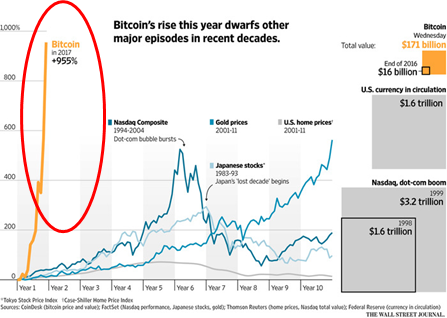 We also spent the month of December (and November, and October…) glued to the price of Bitcoin. It’s a digital currency or “cryptocoin” that has been in operation since 2010 and has recently become more widely known.
We also spent the month of December (and November, and October…) glued to the price of Bitcoin. It’s a digital currency or “cryptocoin” that has been in operation since 2010 and has recently become more widely known.
You may have seen the news stories late last year as this niche technology captured much wider interest and began to be covered extensively in the media due to its massive gains in value (see the plot shown indicating the exponential rise in value that took place as compared to other asset bubbles).
Having followed it for a few years we decided to buy a very small amount of Bitcoin in September 2017 and were fortunate to experience some of the recent massive surge in value it experienced last year. Huge levels of new interest in this digital currency with only 16 million units in circulation, led to a price increase from approximately $3500 per coin in September to nearly $19,000 in December. It has since crashed back down to $8,000 though and still dropping. But such are the dizzying highs and lows of crypto-coin speculation.
It is interesting to watch the varied commentary when something like this happens. On the one hand, there are those who have bought into this vision of the future and see Bitcoin (and other cryptos) as a future “currency of the people” and say it will soon be worth hundreds of thousands of dollars per coin. A universal currency that is not controlled or manipulated by banks or governments has a certain appeal for lots of reasons.
On the other hand, there are those who represent the established banking industry or government regulators who are making dire predictions of a total collapse of this absurd speculative bubble based on a meaningless creation.
The truth about Bitcoin and other digital currencies is probably likely to be somewhere in between these two extreme predictions. There is enough interest in the technology that there seems to be no doubt it will survive in some form.
As with all disruptive technologies, there are incumbents who are unsettled by its potential and have much to lose when their own industry is threatened…i.e. bankers and government regulators. While those first movers who believe in the technology will vastly exaggerate its potential in order to drive others to get on board.
The argument that Bitcoin is in reality worthless seems strange as, so are all currencies (pieces of paper after all) except that governments back them and give them value. Hence you know your paper Euro has value, but we also know what happens when governments collapse and currencies devalue extraordinarily as is currently happening in Venezuela. This does happen and suddenly a currency can become near worthless when the trust breaks down.
As something like Bitcoin gains acceptance then it will of necessity gain intrinsic value from those who believe in it and are willing to transact it and assign value. The problem, for now, is, of course, its volatility. It’s getting harder for people to sign up to use it when its price is moving by so much and so quickly.
The counter-argument made in favour of Bitcoin is that while unlikely to replace regular currency, it represents a new way to store value in the place of gold. Not that many of us tend to buy gold these days to store value, but you get the idea. If Bitcoin can be readily purchased by anyone with a pc and stored safely (this may be an issue) and it keeps or grows in value over time, then it represents an improvement over gold.
The obvious comparison to make here is to the buying of company stock. When you buy stock in a company, you are investing in the future growth potential of that company. So when your investment goes up, is it because some tangible economic value has been delivered by the people in that company and so you are sharing in the increased company worth as your stock goes up. This doesn’t really apply to the crypto asset class, however, as there is currently no obvious intrinsic value to use in order to figure out if its price is reasonable or which direction it’s likely to go. Hence it is for now pure speculation and everyone buying it is hoping that they are not the last buyers. Hence it is very very volatile and very unpredictable, but this is not unusual for such a disruptive new technology.
It is certainly an interesting phenomenon that is in the very early stages of its development. We have decided to ride out the volatility with our little investment to
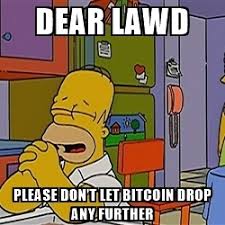 see where this all goes. Remember the Internet in the late 90’s when many apparently silly ideas with a “dot com” attached to their names would surely change our lives dramatically in the future, and these ideas were driving massive speculation in stock markets prices. And then it all burst in the economic crash of 2000. With hindsight, we can now see how that has played out after all the crushed dreams and silliness are gone.
see where this all goes. Remember the Internet in the late 90’s when many apparently silly ideas with a “dot com” attached to their names would surely change our lives dramatically in the future, and these ideas were driving massive speculation in stock markets prices. And then it all burst in the economic crash of 2000. With hindsight, we can now see how that has played out after all the crushed dreams and silliness are gone.
Yes, it was a bubble, but yes the technology did change the world dramatically once people figured out the true value in it.
There may be something to this Bitcoin thing.
Watching this Bitcoin story unfold in December certainly added a different angle to the Christmas cheer in our house: while kids were drooling over the latest toys that might make the Christmas list, Dad (at least) was drooling over the surge in Bitcoin value.
But then the hangover set in..
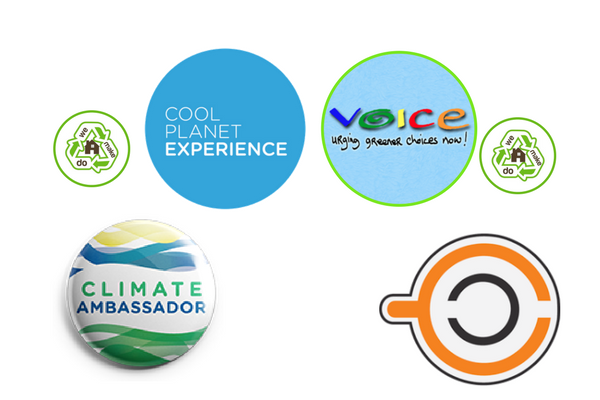
by wemakedo | Oct 6, 2017 | family, Plastic Free July |
“The wind of change is blowing through this (continent) country. Whether we like it or not, this growth of national consciousness is a (political fact) possibility?”.
– British PM Harold Macmillan in speech given in South Africa concerning decolonisation (with some modification)
Here in the WeMakeDo household, we try to ensure that we are at least considerate of our impact on our surroundings as best we can. We try to bring this perspective into all our family decisions because we feel it is a must for the sake of our kids’ future and the state of our surroundings.
With ridding ourselves of single-use plastic as our current focus, sometimes arguing over who “buckled” and bought another plastic bag of frozen peas or who owns the plastic water bottle that appeared in the bin may seem like we have nothing better to do. But to make the change stick, it’s important to question everything and to realise why it’s worth questioning these seemingly trivial everyday household decisions.
“When you bought that plastic bottle, you assumed responsibility for it now being part of our collective waste pile and for being a burden on the environment that your children will have to deal with as it hangs around for a hundred years!”. etc. etc. finger wagging included.
We don’t quite go that far….usually.
It’s easy to sometimes think that for every plastic bag of peas you forego (even though you love peas), that there are so many more being purchased and discarded that it can’t possibly make any difference. But it’s also important to remember that, as with any shifts in popular thinking, lots of seemingly small efforts to change the status quo can lead to tipping points in social behaviour which will then transform what is deemed acceptable behaviour by the majority. Think of smoking in public buildings or the use of plastic bags in supermarkets in our recent past. Granted these high profile changes were enforced by law in Ireland but how quickly they were accepted and generally lauded gives hope for other more subtle approaches to causing a change in our attitudes.
We have started to notice a significant groundswell of new awareness around environmental issues in Ireland in the last few months which looks to be part of a fabulous next step towards bringing the issues to national attention. There seem to be many new efforts now that when viewed collectively, seem like we have turned a corner in Ireland and people are taking this problem seriously.
Perhaps Mr D. Trump has inadvertently given rise to a reaction against his position on climate change that may, in the long run, bring about more change than if he hadn’t tried to declare it an overblown hoax.
Here are just a few examples we were delighted to learn about in recent weeks:
 Recently, you may have noticed the “conscious cup”advertising campaign encouraging people to bring their own cup when buying coffee. From a group of simply “concerned individuals” active on the Zero waste Facebook page, this effort aims to raise awareness about the approximately 200million cups we dispose of in Ireland (15 minutes after we purchase them).
Recently, you may have noticed the “conscious cup”advertising campaign encouraging people to bring their own cup when buying coffee. From a group of simply “concerned individuals” active on the Zero waste Facebook page, this effort aims to raise awareness about the approximately 200million cups we dispose of in Ireland (15 minutes after we purchase them).
Few people would argue in favour of this behaviour but until it’s pointed out to us, then it’s easy to just do as we’ve always done.

Cool Planet Experience and the EPA have launched a Cool Planet ambassadors program which will focus on educating the general public about how to respond to Climate Change:
“Once selected, the Cool Planet will train the 26 Cool Planet Champions to engage, educate and inspire the general public in their own county about how our changing climate directly impacts them and how they can make a real, practical difference.”

 In a similar program sponsored by An Taisce with support from the Department of Communication, Climate Action and Environment, National Climate Ambassadors are being appointed to help to stimulate awareness and change at a local level throughout Ireland. The program will look for the Ambassadors to take at least 4 specific actions in their locality aimed at raising awareness and educating the public on the effects of climate change in our lives.
In a similar program sponsored by An Taisce with support from the Department of Communication, Climate Action and Environment, National Climate Ambassadors are being appointed to help to stimulate awareness and change at a local level throughout Ireland. The program will look for the Ambassadors to take at least 4 specific actions in their locality aimed at raising awareness and educating the public on the effects of climate change in our lives.
 Voice Ireland have just finished recruiting for a recycling ambassador program on a national scale. This excellent program also aims to bring about change in our waste habits by means of education. The focus here is on improving recycling rates in Ireland and trying to remedy a national issue with the poor quality of our recycled waste. This large program aims to hire 25 paid ambassadors to help educate people on household waste management and how to recycle correctly as well as collect feedback on issues encounte
Voice Ireland have just finished recruiting for a recycling ambassador program on a national scale. This excellent program also aims to bring about change in our waste habits by means of education. The focus here is on improving recycling rates in Ireland and trying to remedy a national issue with the poor quality of our recycled waste. This large program aims to hire 25 paid ambassadors to help educate people on household waste management and how to recycle correctly as well as collect feedback on issues encounte red. It seems that while in Ireland the amount of recycling waste generated is reasonably high, the quality of this recycled waste stream is not so good due to cross contamination. We’re not so good and putting things in the correct place to ensure the individual recycling or composting waste streams are “clean”.
red. It seems that while in Ireland the amount of recycling waste generated is reasonably high, the quality of this recycled waste stream is not so good due to cross contamination. We’re not so good and putting things in the correct place to ensure the individual recycling or composting waste streams are “clean”.
The hope is that this program will generate useful feedback for government bodies to use in making the process easier for people to use, leading to improved levels of recycling.
 Another example we were delighted to read about this effort in the Dail led b
Another example we were delighted to read about this effort in the Dail led b y the Green Party to legislate for reduced packaging:
y the Green Party to legislate for reduced packaging:
Bill entitled: An Act to provide for a ban on single-use non-compostable cups and other tableware and for the introduction of deposit and return schemes for beverage containers
The proposed bill which has yet to make its way through approval aims to ban non-biodegradable coffee cups and other tableware.Hopefully, this overdue response to a significant source of landfill waste will be successful.
To help understand the incentives which may be helping to drive this increased focus we have been noticing, the EPA publishes a report on how we are doing nationally on our waste handling. This report shows our performance against EU targets set for Ireland and it appears we are doing quite well.
In the table below, (ref: EPA- Progress towards EU waste targets – August 2017) the 2020 goals for “recycling” (paper, metal plastic and glass) as well as for waste quantities to landfill are shown. We were probably no waste angels in 1997 – the year our targets are compared to but dropping to 35% of that amount in 23 years sounds impressive. Having met our 2013 reduction goals, it’s looking good for the 2020 goals also, but clearly, more focus is needed to make sure this stays on track.

It’s very inspiring to see groups like Voice Ireland, “Zero wasters” and others stepping up to contribute to this transition process and make us pay attention. Mrs WeMakeDo was delighted to be awarded one of the ambassador roles in the Voice Ireland program and is looking forward to helping with their process.
Shifting people’s habits on a national scale takes dialogue, focus and a lot of effort, but it’s how the big results can eventually come about. Let’s hope we are witnessing a new tipping point in Ireland and that these great initiatives can cumulatively swing us in a new direction for the better.
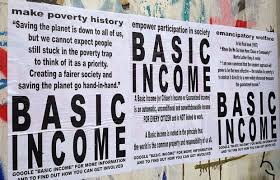
by wemakedo | Sep 8, 2017 | community, family |
This concept of a Universal Basic Income for all has been doing the rounds for a long time now and re-emerges regularly when some newsworthy person or other decides to be an advocate. Recently Mark Zuckerberg (Facebook CEO) delivered a commencement speech to US Harvard graduates in which he called for “exploring a system of wealth distribution known as Universal Basic Income”. And so followed a renewed flurry of commentary about this groundbreaking concept and how it might work. Or how it could never work.
The WeMakeDo family has been trying for some time now to experiment with tightening up our household annual costs and at the same time considering how we would live if we were to stop living off salaries from for-profit companies. Mrs WeMakedo started her own business a few years ago (the Babymarket.ie) which has been thriving but is not sufficient to sustain us yet. Mr WeMakedo has been considering ending his salaried position of 20 years simply because it no longer meets any of the higher order needs that can become more important to us as we get older.
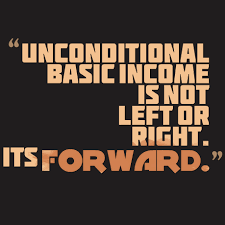
You know that itch of the soul that starts to become harder to scratch as routine and monotony starts to kick in. Working for someone else can get a little wearisome and usually change is a good thing to bring upon ourselves.
A regular salary is nice and comforting but it can be detrimental to your motivation and creativity. Unless you are one of the lucky few who love what they are salaried to do, then its seems there is a limit to how much enthusiasm one can continue to generate for someone else’s agenda when they are paying you to do it. Some would say that a regular salary is the best way to stifle creativity and ingenuity. As the insightful author Nassim Taleb (author of “The Black Swan”) has said, “The three most harmful addictions are heroin, carbohydrates and a monthly salary”.
Of course one has to be practical too and ensure that family needs that we determine to be important, can be, and will continue to be met. But in a society where self-worth has become strongly attached to one’s “career” position and one’s outwardly displayed signs of high income, we are in danger of losing sight of what really satisfies us. And when you start to figure that out, then if a salaried job isn’t in some way aligned with those sources of satisfaction, then it needs to be seriously delivering in other ways to make it continue to be worthwhile.
For some people, that satisfaction may truly come from driving an expensive car to work at a company where we feel our position also commands respect from peers. But for some, this career path we are sold may turn out to not bring that deeper satisfaction we are craving. For some like myself, it just seems to take longer for the realisation to occur and then for some decisive action to follow.
Universal Basic Income is the idea that a government will pay every citizen some guaranteed regular amount to live-on so that their basic needs can always be met. It is not intended as a means to allow people to live without contributing to society. In fact, the model intends (and some evidence suggests) that by being freed from the stress and/or monotony of having to find a way to meet one’s basic needs, it will allow for larger sections of society to engage in fulfilling and still productive activities. The model assumes that the societal gain from this approach to funding people’s basic cost of living should outweigh the direct financial costs of funding the UBI.
At its most basic, UBI will lift a large section of society out of poverty. With this approach, everyone will have enough money to live to a basic standard. The UBI also may also help growing populations deal with the emerging trends in industry which suggest that as automation and artificial intelligence take hold, there will be fewer manual or menial jobs available for the population in general.
What will the masses do if there are no factories to get mind-numbing work in? Well, they’ll probably figure out better ways to use their time. Happier people should lead to improved general well-being, health and community engagement.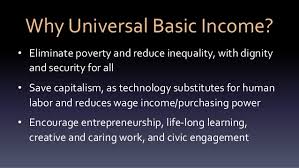
Some would argue that the free market model we currently follow in the capitalist world will force those in need of a salary to survive by whatever means is available to them, to become more inventive about how they meet their needs. But it’s hard to see how this forced creativity can be as good for society as a whole (or as enjoyable) as the unforced creativity afforded by the presence of a basic income in a UBI society.
The question of where the funding for the Basic income comes from seems somewhat contentious. In most proposed versions, taxes are raised to do this. Thus, a large scale redistribution of wealth would take place, from those who can afford to pay which is then used to stimulate the less well-off in society. In this model, it is expected that those less well-off people will now tend to put more of the (UBI) wealth back into the economy and thereby grow it significantly. In other words, after the initial shock of the increased taxes subsidies, the overall economy will grow significantly to the point where the tax burden of providing UBI is no longer felt as a burden.
All well ‘n good if you’re not part of the wealthy section of society that will feel like it has to pay for this experiment. But there is a well researched economic thesis that suggests that as the wealthy in society become more wealthy, they are stifling economies by hoarding this wealth. As they control more and more and prefer not to spend it (in order to stay wealthy), this tends to have a dampening effect on the economy.
We currently try to get around these stagnating economic scenarios by the use of “stimulus” packages such as we have seen in many countries since the 2007 financial crisis. Most often this takes the form of government infrastructure spending on roads and bridges, thereby indirectly forcing large sums of money into circulation or, also by simply printing more money for banks to loan out to borrowers which tends to be used in the US economic model. These are also just different means of infusing a stagnant economy with large amounts of cash.
Is distributing this money to individuals to use for their basic needs that much different to what we are now doing in times of economic difficulty?
It is also argued by those against the UBI, that without the incentive to work, the majority of people simply won’t do anything. And the funny thing here is that many of us tend to think that “of course I would want to be productive, but its those other (insert some adjective to describe those we think of as inherently lazy) who wouldn’t bother”.
Actual test cases of the UBI in action have shown that very small reductions in the numbers who want to work are observed and in some cases an increase in numbers takes place.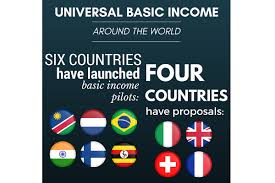
The truth here is that we all need to feel valued and to feel we contribute to our social circles in some way. And so small experiments in use of UBI have already shown that the numbers of those being productive will tend to go up rather than down once basic needs are met. The difference with a basic income in place is that the life-happiness measures go up a lot when the choices for how you make your contribution not hampered by the need to earn a salary from them.
Imagine how much more creativity we would see in such unrestricted societies?
For lots of info on what is happening to progress the Universal Basic Income movement, visit http://basicincome.org/
Now back to work.
For at least a little while longer.
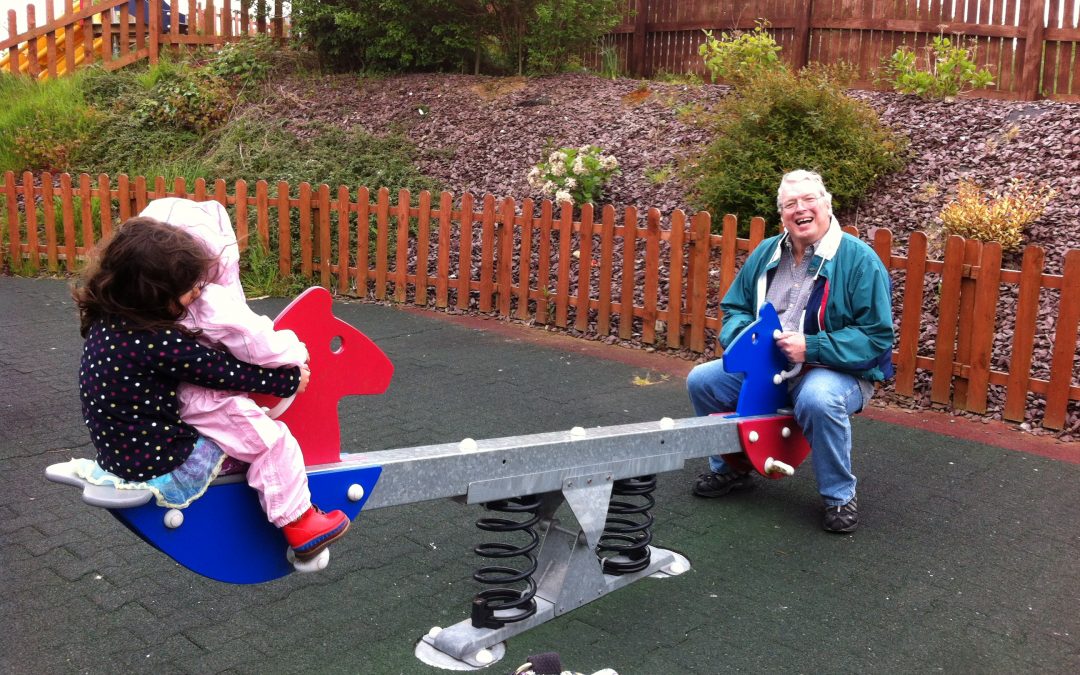
by wemakedo | Feb 4, 2017 | family |
The WeMakeDo family spent the Christmas period in Arizona this year. But unlike other family holidays, this one had a defined but very daunting purpose to it: To clear out Grandpa and Grandma MakeDo’s house of the past 40 years, to sell it and get them moved up to the Northwest to be closer to grandkids. What started as a challenging but seemingly attainable goal turned into a heart breaking experience, so poignant in its irony, that we feel it has to be shared for the message it conveys so clearly.
 Grandpa MakeDo was the best Grandpa ever, with endless time and love for his grandkids. His lifetime dream was to live surrounded by his family – he used to use the phrase “family compound”, with the grandkids running freely between houses. But, 20 years on, they had somehow found themselves with kids gone and without much of a community around them. Elder isolation had crept in, and their quality of life was diminishing. When Mrs MakeDo would describe our set-up in Ireland to them, with the kids running over to their Nana’s house, Grandpa in particular would smile in envy. How lucky he said their Irish Grandma was, to have the kids and grandkids so near. In the US, unfortunately, most of us don’t live like this.
Grandpa MakeDo was the best Grandpa ever, with endless time and love for his grandkids. His lifetime dream was to live surrounded by his family – he used to use the phrase “family compound”, with the grandkids running freely between houses. But, 20 years on, they had somehow found themselves with kids gone and without much of a community around them. Elder isolation had crept in, and their quality of life was diminishing. When Mrs MakeDo would describe our set-up in Ireland to them, with the kids running over to their Nana’s house, Grandpa in particular would smile in envy. How lucky he said their Irish Grandma was, to have the kids and grandkids so near. In the US, unfortunately, most of us don’t live like this.
So the extended family came up with a plan. We’ll move Grandpa and Grandma up to the Pacific Northwest, where 8 members of the family were, including 3 grandkids. And then we’ll work on getting them a visa to live in Ireland, once the Washington family have had enough! Then Grandpa MakeDo’s life dream could finally come true.
That plan was hatched about 2 years ago and unfortunately never took off….
The problem was, Grandpa was a little bit of a hoarder. He loved electronics, and woodworking, and airplanes, and BOOKS! Piles of books that hadn’t been looked at in years. And every kind of tool imaginable. Coffee cans of screws and nails that ‘could be useful someday’. Furniture from his great grandma, and special cherrywood that he’d planned to build a desk out of in 1972. He couldn’t bear to part with any of it. His hobbies and passion for learning was what made him interesting and wonderful. But unfortunately, that’s also what prevented him and Grandma from selling the house and moving closer to family.
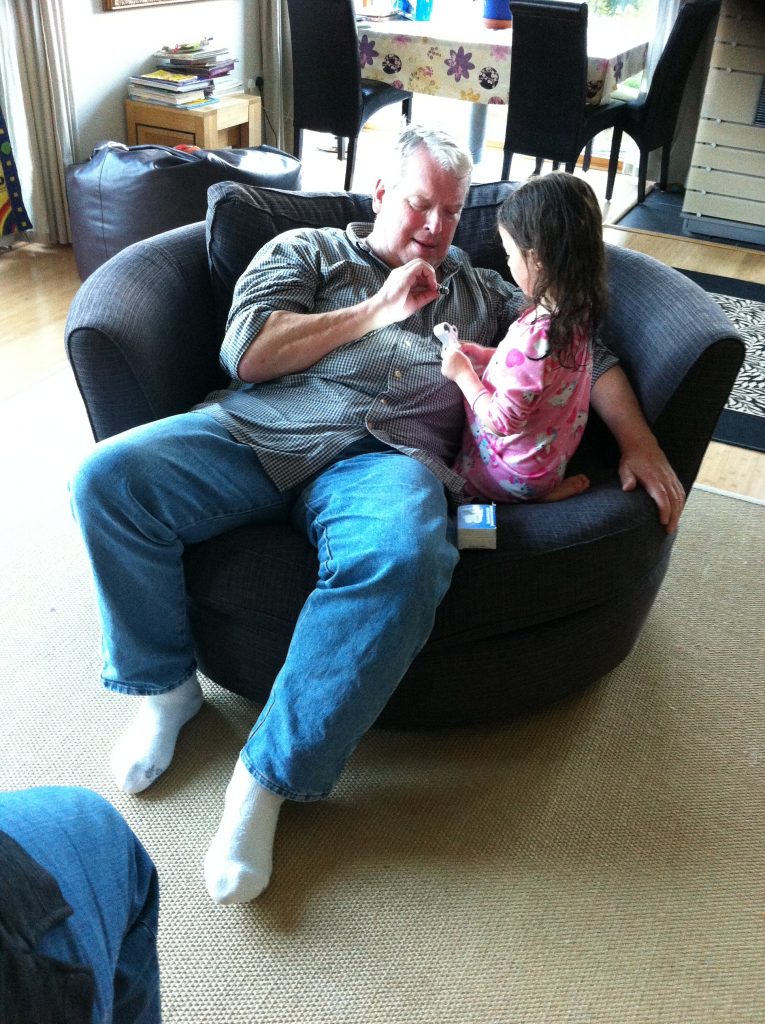 So, with a nagging feeling that time was of the essence, round 2 of the plan was devised and approved by all family. We (Mr & Mrs MakeDo) would come to Arizona to do the ugly work: Pry the possessions from a now fragile Grandpa MakeDo, by distracting him with the company of his grandkids. It worked beautifully, and after working nearly 10 hours a day for 3 weeks (a blog post for another day about the joys of dispositioning heaps of stuff to numerous amazing charities, and the wonderful support of friends and family who pulled together to support this effort), we decided we’d finished. So we rewarded ourselves by driving up to the mountains for a 2 day holiday-within-a-holiday.
So, with a nagging feeling that time was of the essence, round 2 of the plan was devised and approved by all family. We (Mr & Mrs MakeDo) would come to Arizona to do the ugly work: Pry the possessions from a now fragile Grandpa MakeDo, by distracting him with the company of his grandkids. It worked beautifully, and after working nearly 10 hours a day for 3 weeks (a blog post for another day about the joys of dispositioning heaps of stuff to numerous amazing charities, and the wonderful support of friends and family who pulled together to support this effort), we decided we’d finished. So we rewarded ourselves by driving up to the mountains for a 2 day holiday-within-a-holiday.
We arrived back to find that Grandpa had just been taken to hospital after collapsing at a doctor’s appointment. The next day was our eldest child’s 6th birthday, which we planned to celebrate by sneaking the kids and chocolate cake & candles into Grandpa’s hospital room. When we got there, he was not in any shape for celebrating. His last words were a warm Happy Birthday to our eldest, and telling them how much he loved them as he hugged them. And a few days later, he was gone.
The fist pounding, frustrating, horrible irony of this all is that his stuff prevented him from realizing his lifelong dream. This plan was never able to get off the ground over the previous 2 years due to the overwhelming burden of their possessions. It was just too difficult and a source of too much contention to start to tackle the stuff that needed to be sifted through. This meant that Grandpa did not get to spend the last few years of his life around his grand kids as was his dream. And, too much of his last few weeks were taken up in dealing with stuff and what to do with it: Issues like some missing items, lost due to all the moving around that was going on…..where should things go that were just too big to take but too good to give away …what price should we ask for some tools that were too good to donate etc. etc. Surely these things we accrue during our lives do not deserve to take so much of our time as they can do especially when it is so, so precious.
We returned home heartbroken….and even more determined not to let our stuff dictate to us under any circumstances.
Apologies for the lack of communication here for a while, but we couldn’t find the words.
“Onward and upward” as Grandpa would say…
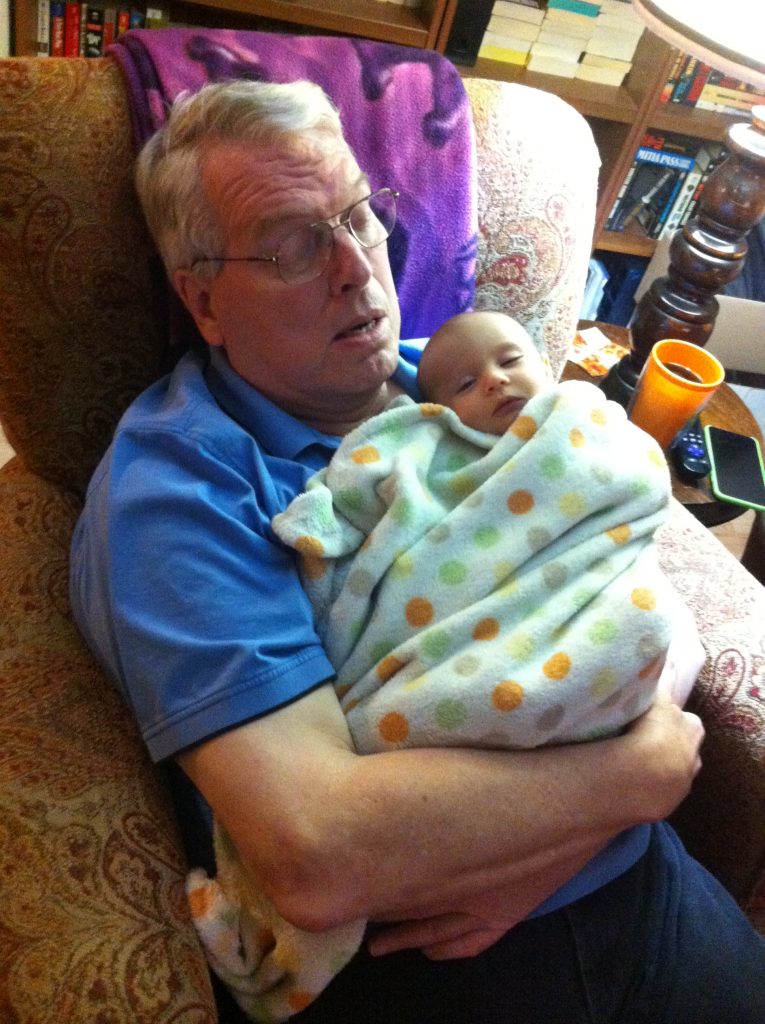

 We did at least try to use fabric to wrap the stuff under the tree which worked well, but there was no doubt that the whole event was too much about the purchases despite some vague earlier intentions to inject some other values into the occasion and try to give it a broader meaning. The whole idea of teaching kids to be good so that they can get more stuff from Santa on Christmas day seems like such an outdated lesson to giving our children. What natural conclusions would young minds draw from this as they see it played out year after year at Christmas time? It’s a very self-interested and greed-inducing message to give. Isn’t it time we moved on from this?
We did at least try to use fabric to wrap the stuff under the tree which worked well, but there was no doubt that the whole event was too much about the purchases despite some vague earlier intentions to inject some other values into the occasion and try to give it a broader meaning. The whole idea of teaching kids to be good so that they can get more stuff from Santa on Christmas day seems like such an outdated lesson to giving our children. What natural conclusions would young minds draw from this as they see it played out year after year at Christmas time? It’s a very self-interested and greed-inducing message to give. Isn’t it time we moved on from this?
 We also spent the month of December (and November, and October…) glued to the price of Bitcoin. It’s a digital currency or “cryptocoin” that has been in operation since 2010 and has recently become more widely known.
We also spent the month of December (and November, and October…) glued to the price of Bitcoin. It’s a digital currency or “cryptocoin” that has been in operation since 2010 and has recently become more widely known.
 see where this all goes. Remember the Internet in the late 90’s when many apparently silly ideas with a “dot com” attached to their names would surely change our lives dramatically in the future, and these ideas were driving massive speculation in stock markets prices. And then it all burst in the economic crash of 2000. With hindsight, we can now see how that has played out after all the crushed dreams and silliness are gone.
see where this all goes. Remember the Internet in the late 90’s when many apparently silly ideas with a “dot com” attached to their names would surely change our lives dramatically in the future, and these ideas were driving massive speculation in stock markets prices. And then it all burst in the economic crash of 2000. With hindsight, we can now see how that has played out after all the crushed dreams and silliness are gone.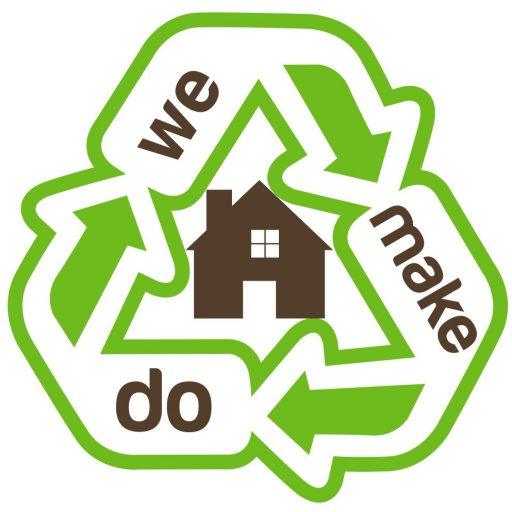


 Recently, you may have noticed the
Recently, you may have noticed the 

 In a similar program sponsored by An Taisce with support from the Department of Communication, Climate Action and Environment,
In a similar program sponsored by An Taisce with support from the Department of Communication, Climate Action and Environment, 
 red. It seems that while in Ireland the amount of recycling waste generated is reasonably high, the quality of this recycled waste stream is not so good due to cross contamination. We’re not so good and putting things in the correct place to ensure the individual recycling or composting waste streams are “clean”.
red. It seems that while in Ireland the amount of recycling waste generated is reasonably high, the quality of this recycled waste stream is not so good due to cross contamination. We’re not so good and putting things in the correct place to ensure the individual recycling or composting waste streams are “clean”. Another example we were delighted to read about
Another example we were delighted to read about  y the Green Party to legislate for reduced packaging:
y the Green Party to legislate for reduced packaging:





 Grandpa MakeDo was the best Grandpa ever, with endless time and love for his grandkids. His lifetime dream was to live surrounded by his family – he used to use the phrase “family compound”, with the grandkids running freely between houses. But, 20 years on, they had somehow found themselves with kids gone and without much of a community around them. Elder isolation had crept in, and their quality of life was diminishing. When Mrs MakeDo would describe our set-up in Ireland to them, with the kids running over to their Nana’s house, Grandpa in particular would smile in envy. How lucky he said their Irish Grandma was, to have the kids and grandkids so near. In the US, unfortunately, most of us don’t live like this.
Grandpa MakeDo was the best Grandpa ever, with endless time and love for his grandkids. His lifetime dream was to live surrounded by his family – he used to use the phrase “family compound”, with the grandkids running freely between houses. But, 20 years on, they had somehow found themselves with kids gone and without much of a community around them. Elder isolation had crept in, and their quality of life was diminishing. When Mrs MakeDo would describe our set-up in Ireland to them, with the kids running over to their Nana’s house, Grandpa in particular would smile in envy. How lucky he said their Irish Grandma was, to have the kids and grandkids so near. In the US, unfortunately, most of us don’t live like this.

